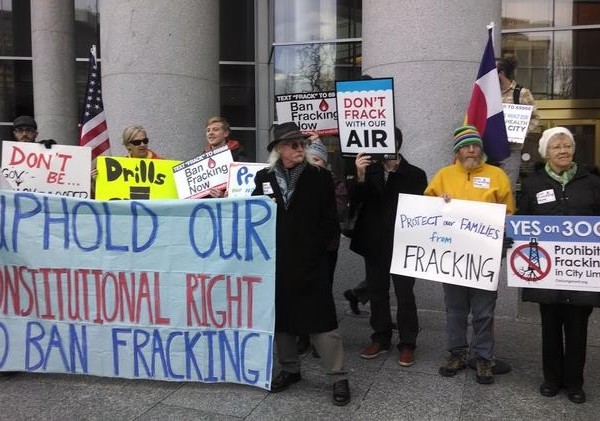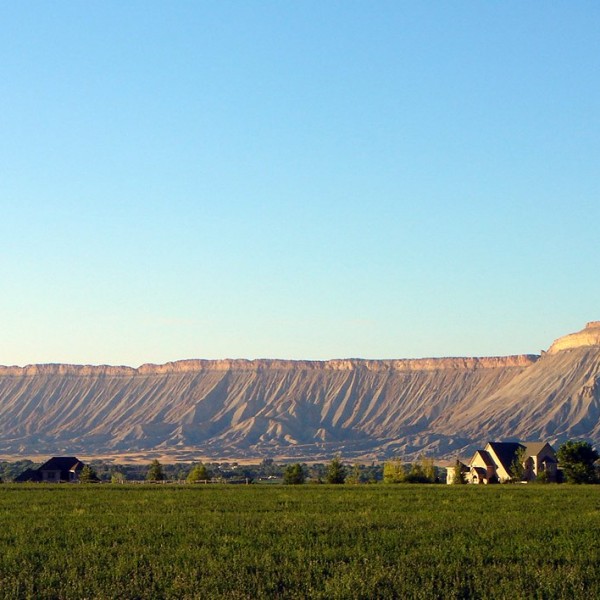In The News
2 anti-oil and gas initiatives unlikely to make Colorado ballot, group’s analysis shows DBJ

By Cathy Proctor Reporter Denver Business Journal Aug 12, 2016 Chances appear to be slim for two ballot initiatives aimed at curbing Colorado’s oil and gas industry to on the state’s November ballot, according to a group’s review of documents submitted to Colorado Secretary of State Wayne Williams’ office earlier this week. Vital for Colorado, a…
Guest column by Robert Golden, Mike Kopp and Jeff Wasden May 11, 2016 With the Colorado Supreme Court’s decision preserving responsible energy development in the state, fringe activists will attempt one final Hail Mary aimed at amending the Colorado Constitution. Backers of four measures targeting oil and gas development in Colorado have begun collecting the…
By Kelly Brough May 6, 2016 Private property rights are foundational to the American dream. It’s how many of us have built wealth in the history of this country. From owning your first home to developing or selling property, private property rights play a role in creating wealth and feeding our economic health.
The Denver Post Editorial Board March 24, 2016 It sounds fairly innocent: Why shouldn’t oil and gas companies “be treated just like any other industry,” as one state lawmaker insisted recently, when it comes to local land-use regulation? Well, that might be fine in a world in which every jurisdiction operated in good faith in…
DAN HALEY GUEST COLUMNIST February 27, 2016 Environmental activists often paint a picture of the oil and gas industry in Colorado as an unregulated Wild West, where there are no rules and no consequences. That image couldn’t be further from the truth. Since 2010, the state has created some of the most rigorous rules in…
DBJ: 11 new ballot proposals take aim at Colorado oil and gas industry, fracking

Cathy Proctor Reporter Denver Business Journal Eleven separate ballot proposals aimed at Colorado’s oil and gas industry — including increasing setbacks to 4,000 feet and a statewide ban on the use of hydraulic fracturing, or fracking — have been filed with the state’s Legislative Council, the first step to getting on the 2016 ballot. If…
Statement: Vital for Colorado Applauds Bipartisan Work to Lift Oil Export Ban

We have some exciting news! Last week, Congressional leaders agreed to a compromise on lifting the 40-year old oil export ban. The proposal was added to the country’s appropriations bill, which lifted the ban, among other key spending items.
EPA: Executive Summary, Hydraulic Fracturing Study - Draft Assessment 2015

The U.S. Congress urged the U.S. Environmental Protection Agency (EPA) to study the relationship between hydraulic fracturing and drinking water.
There’s no evidence of water-based contaminants seeping into drinking water wells atop a vast oil and gas field in northeastern Colorado, according to Colorado State University scientists working to protect and inform citizens about the safety of their water.
Lifting what it describes as an outdated ban on crude oil exports from the United States could bolster energy production and in turn the economy in resource-rich Colorado, according to a coalition of business and economic development leaders in the state.
When Gov. John Hickenlooper expressed his support for the Jordan Cove Energy Project, he joined the Grand Junction Economic Partnership, Grand Junction Area Chamber of Commerce, and West Slope Colorado Oil and Gas Association in citing the potential economic benefits of the project to western Colorado.
GRAND JUNCTION, Colo On Friday congress will vote to overturn the oil export ban originally introduced in 1975.











































